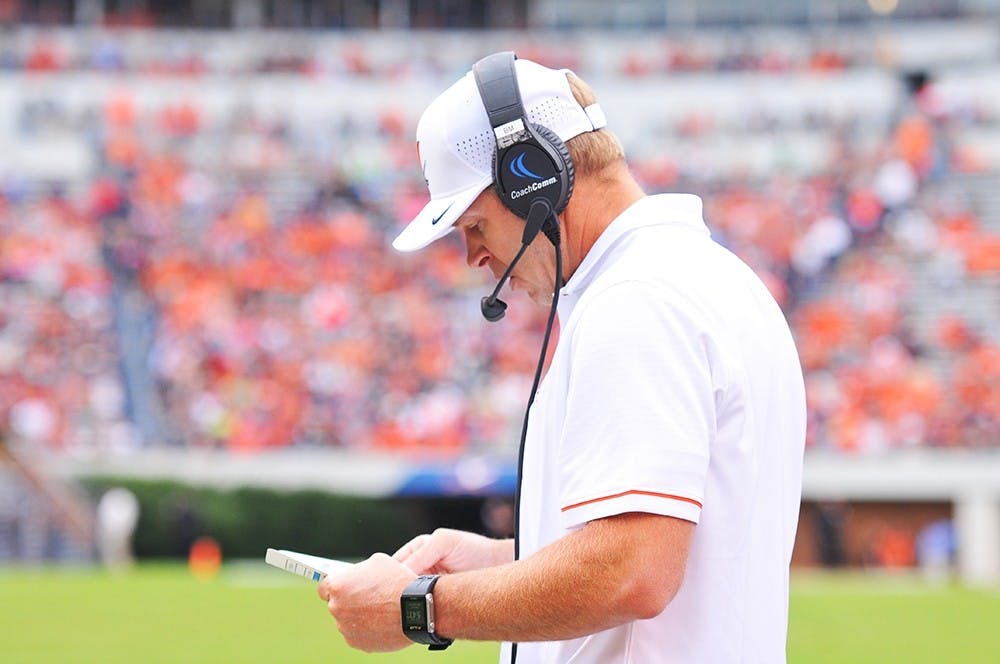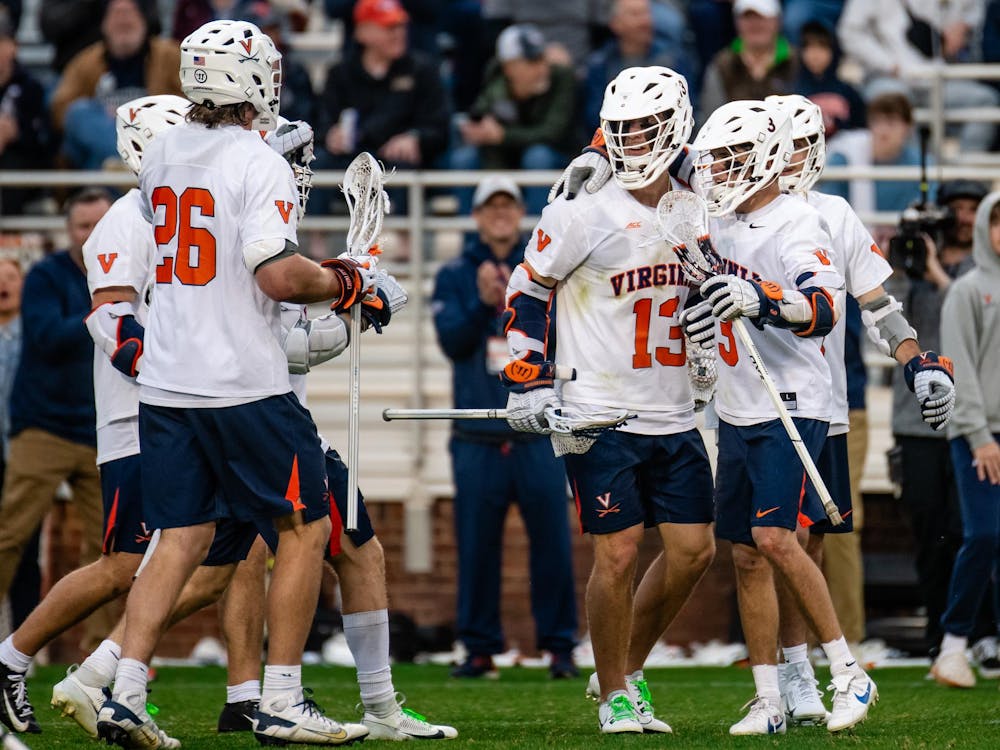Public perception of the Virginia football program is poor at the moment, and for good reason. The Cavaliers finished only 2-10 (1-7 ACC) this past season, the latest in a long string of disappointing seasons. However, many seem to feel the program is capable of being competitive with the best programs in the ACC conference.
In sports — as in many industries — dollars speak, and we set out to determine if athletic director Craig Littlepage is paying football coach Bronco Mendenhall and his staff the going rate for a top tier program.
Information released to The Cavalier Daily by the University under the Freedom of Information Act containing faculty and administration salaries for the 2016-17 academic year shows that Mendenhall earned $3,366,538. We combined this with information from prior request from The Cavalier Daily and published by other sources to try and determine how competitive Virginia football is from a financial perspective, and how this reflects on the field.
Contract & Assistants
Mendenhall’s five-year contract outlines a salary competitive in both the ACC and across the country. Mendenhall’s total compensation places him at No. 31 nationally in terms of what schools are paying their head coaches.
While this shows Mendenhall is paid to compete nationally, this by itself is no indication that Virginia football is being held to higher expectations than years past — where former coach Mike London held on for six seasons despite having only one bowl win and a 27-46 record. To see if Mendenhall may be held to a higher standard of competitiveness, it seems only fair to compare him to his predecessor.
There are several differences between Mendenhall’s contract and the five-year deal London agreed to that show Virginia Athletics is committed to creating a competitive program. Mendenhall’s base salary and supplemental pay — $500,000 and $2.75 million respectively — are 50 percent more than London’s base salary and supplemental pay. In London’s first year, his contract detailed a base pay of $315,000 with supplemental pay starting at $2.1 million. Mendenhall’s supplemental pay increases by $150,000 a year, which is more than what was alloted for London.
The University also provided Mendenall with several bonuses that weren’t found in London’s contract. Mendenhall receives a $20,000 bonus for every sold-out home game Virginia plays. He receives an additional bonus of $50,000 for a team GPA of over 3.0.
Mendenhall’s edge over London continues with the rest of the staff as well. Mendenhall’s assistants are paid out of a $3 million pool with a five percent increase each year. London’s assistants were paid out of a $2,150,000 pool with the same five percent increase. According to Streaking the Lawn, London’s assistants’ pool had increased to about $2.6 million for the 2015 season — still significantly less than what Mendenhall’s assistants were paid in the 2016 season.
Offensive coordinator Robert Anae is the highest paid assistant on Mendenhall’s staff, earning $560,00 a year. According to USA Today, Anae is also the No. 12 highest paid assistant coach in the ACC.

How does U.Va. stack up against rivals?
For many football fans, Virginia’s most obvious rival and competitor is Virginia Tech. After coach Frank Beamer’s retirement, Virginia Tech hired new coach Justin Fuente during the same offseason when Virginia hired Mendenhall. Fuente’s reported compensation is $3.2 million — comparable to what Mendenhall receives — and ranks him No. 32 in the nation according to USA Today.
This could be disheartening for Virginia fans, as Fuente went 10-4 in his first year and finished first in the ACC Coastal. Mendenhall achieved much less success, although Fuente inherited a deeper and more talented roster.
There’s no disparity in staff pay either, as Virginia Tech’s assistant pool is $3.36 million, much of which is allocated to defensive coordinator Bud Foster. From a purely monetary standpoint, it stands to reason that the Cavaliers should be able to compete with their rival in Blacksburg.
Virginia Tech isn’t the only school in competition with Virginia. While not all ACC schools are required to disclose what they pay their coaching staffs, taking disclosed data as well as estimates into account, Mendenhall is the second highest paid coach in the Coastal division of the ACC. Miami coach Mark Richt is the only coach believed to be paid more, with a CBS report estimating his salary at around $4 million. Competing for conference championships shouldn’t be out of the question, given Mendenhall’s compensation.
Conclusion
From a monetary perspective, it seems fair to expect Virginia to compete with other schools in the conference, as well as nationally. This lines up well with the goals athletic director Craig Littlepage outlined for Mendenhall when he hired him.
“Our goals [are] graduating our student-athletes … Contending for a divisional title in the ACC, contending for an ACC Championship and then obviously to be able to compete from a national perspective,” Littlepage said.
By giving Mendenhall a bonus for higher GPAs, paying him the second highest salary in the ACC coastal and one of the highest in the nation, it seems Littlepage has put his money where his mouth is in trying to accomplish those goals.
None of this is to say Mendenhall has done a poor job with the program — nobody could have turned the team around in a year, nor was that the expectation. However, those who say Virginia football is content at the bottom of the ACC seem misguided. Virginia is providing its football team with the resources necessary to be a much more competitive program.







